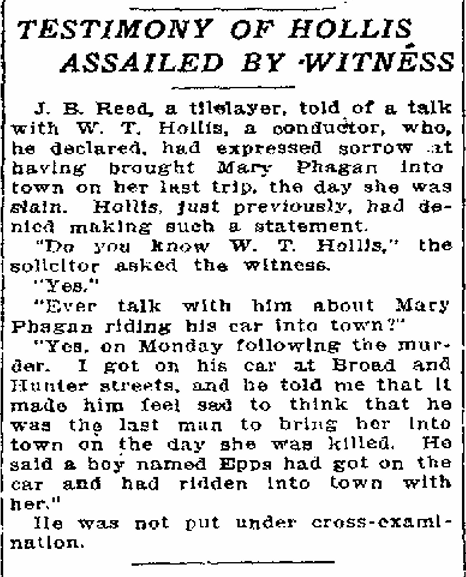Another in our series of new transcriptions of contemporary articles on the Leo Frank case.
Atlanta Constitution
August 21st, 1913
J. B. Reed, a tilelayer, told of a talk with W. T. Hollis, a conductor, who, he declared, had expressed sorrow at having brought Mary Phagan into town on her last trip, the day she was slain. Hollis, just previously, had denied making such a statement.
“Do you know W. T. Hollis,” the solicitor asked the witness.
“Yes.”
“Ever talk with him about Mary Phagan riding his car into town?”
“Yes, on Monday following the murder. I got on his car at Broad and Hunter streets, and he told me that it made him feel sad to think that he was the last man to bring her into town on the day she was killed. He said a boy named Epps had got on the car and had ridden into town with her.”
He was not put under cross-examination.
HE SAW DALTON ENTER FACTORY WITH WOMEN
A mild sensation was sprung in the courtroom when D. B. Maynard, a salesman for the Swift company, went to the stand, testifying that he had seen C. B. Dalton go into the pencil plant on Saturday afternoons with women.
“When did you see Dalton go into the factory with a woman?” he was asked by Dorsey.
“In July, 1912, on Saturday afternoon,” was his reply.
* * *
